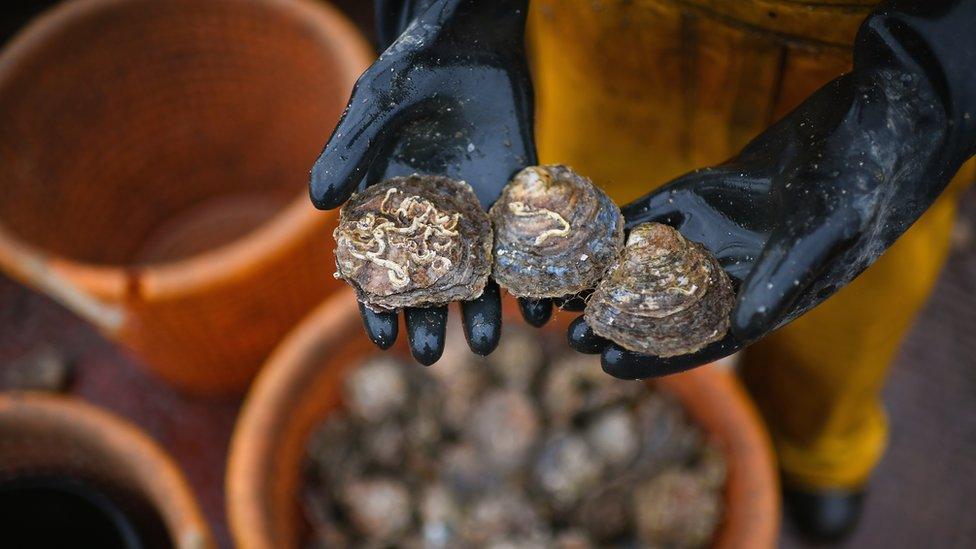EU shellfish import ban indefinite, UK fishing industry told
- Published
- comments

The EU has told British fishermen they are indefinitely banned from selling live mussels, oysters, clams, cockles and scallops to its member states.
As the UK is now a separate country, it is not allowed to transport the animals to the EU unless they have already been treated in purification plants.
But the industry says it does not have enough tanks ready and the process can slow exports, making them less viable.
The government promised to continue to "raise the issue" with the EU.
Since 1 January, UK firms have been able to send only pre-purified, ready-to-eat shellfish - accompanied by an export health certificate - to buyers in the EU's 27 member states.
Until this year, they could be purified - with contaminants removed in clean seawater tanks, external - after they reached their destination.
UK shellfish catches were valued at £393m in 2019.
Only those landed in "class A" waters - the very cleanest - can currently be transported from the UK to the EU without the need for purification beforehand. But most UK waters are not in that category.
The UK government previously said it thought the restrictions on exports of bivalve molluscs, external - such as mussels, clams, cockles, scallops and oysters - would end on 21 April., external
This was because Brussels was "expected" to change its rules on that date to allow unpurified shellfish in from non-member states.
But it has emerged - as first reported by Politics Home, external - that the European Commission wrote to leading UK companies on 13 and 19 January to tell them the current arrangement would be in place indefinitely.
'Very frustrated'
This has increased fears for the future of businesses and staff, amid concerns that purified shellfish go off quicker than unpurified ones, making them harder to transport.
"The issue with shellfish is that they are highly perishable, so there are many risks associated with delays," Barrie Deas, chief executive of the National Federation of Fishermen's Organisations, told the BBC.
"We are really in a high-risk category compared with other kinds of exports."
He added that "nothing" had changed, in terms of the EU's rules, but firms who had thought they were going to were feeling "very frustrated".
A Department for Environment, Food and Rural Affairs spokesperson said: "We will continue to raise the issue of live bivalve molluscs not ready for human consumption with the EU, to ensure the trade can continue securely."
Ministers would work to reach an "appropriate solution", they added.